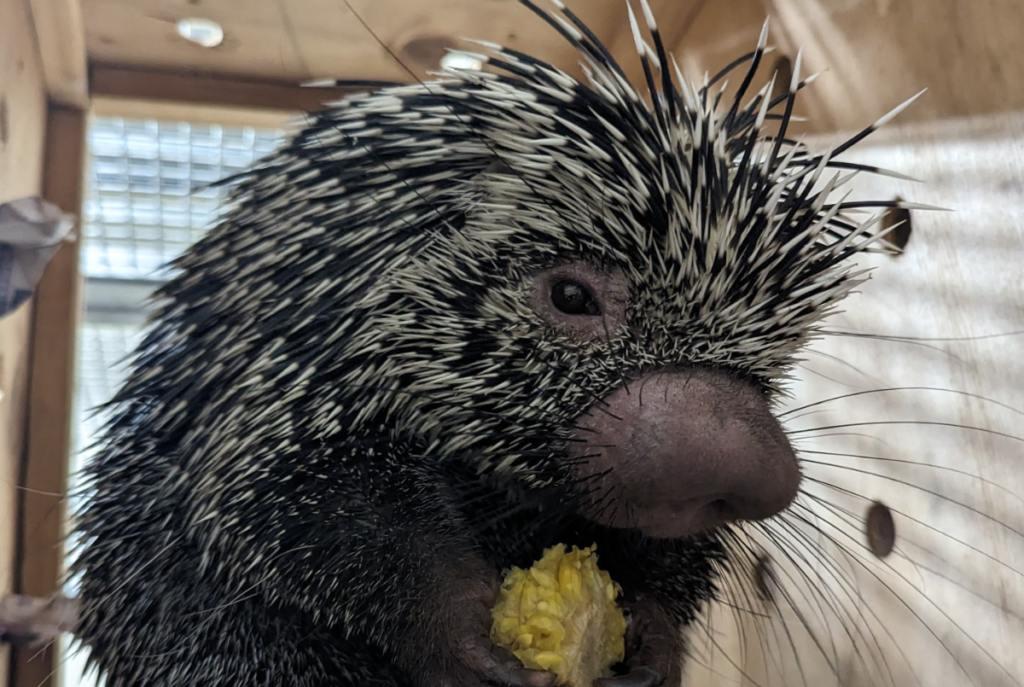Prehensile-Tailed Porcupine

Basic Information:
Scientific Name: Coendou prehensilis
Habitat: Prehensile-tailed porcupines live in the treetops of South American forests within countries such as Venezuela, Guiana, Brazil, Bolivia, Paraguay, Trinidad, and northern Argentina.
Diet: Prehensile-tailed porcupines are herbivores and eat leaves, flowers, shoots, roots, and fruits.
Size: 1 to 2 feet long
Weight: 4 to 11 pounds
Lifespan: 12 to 17 years
Distribution Map:
I.U.C.N. Conservation Status:

What does this mean?
Least Concern – a species determined by the International Union for Conservation of Nature (I.U.C.N.) to be pervasive, abundant, and thriving.
Our Prehensile-Tailed Porcupine
Nounours (Female) – Born October 8, 2020
About Prehensile-Tailed Porcupines:
Being a primarily arboreal species, you can find Prehensile-Tailed Porcupines navigating the trees of South American forests. This is made possible by this porcupine’s unique grasping tail which allows them to grip onto trees as well as hang upside down when needed. They spend most of their time foraging for their favored plant based meals, but like all porcupines, they are ready to defend themselves at a moments notice thanks to the thousands of protective quills covering their back!
Did You Know?!
- When threatened, Prehensile-Tailed Porcupines will attack by either biting its adversary or shaking its quills at it.
- When excited, prehensile-tailed porcupines tend to stamp their feet.
- Prehensile-tailed porcupines are capable of curling up to protect their soft underbellies.
- Prehensile-tailed porcupines are very vocal and can make a variety of sounds: screeches, screams, grunts, whines, wails, and more.
- When courting each other, prehensile-tailed porcupines will often rub noses and “dance” with each other.
- A male porcupine is called a “boar” and a female is called a “sow.”
- Prehensile-tailed porcupines are adept climbers and have the ability to climb immediately after birth if needed. The prehensile-tail that they have allows them to grip tightly to tree branches and climb even more effectively.
